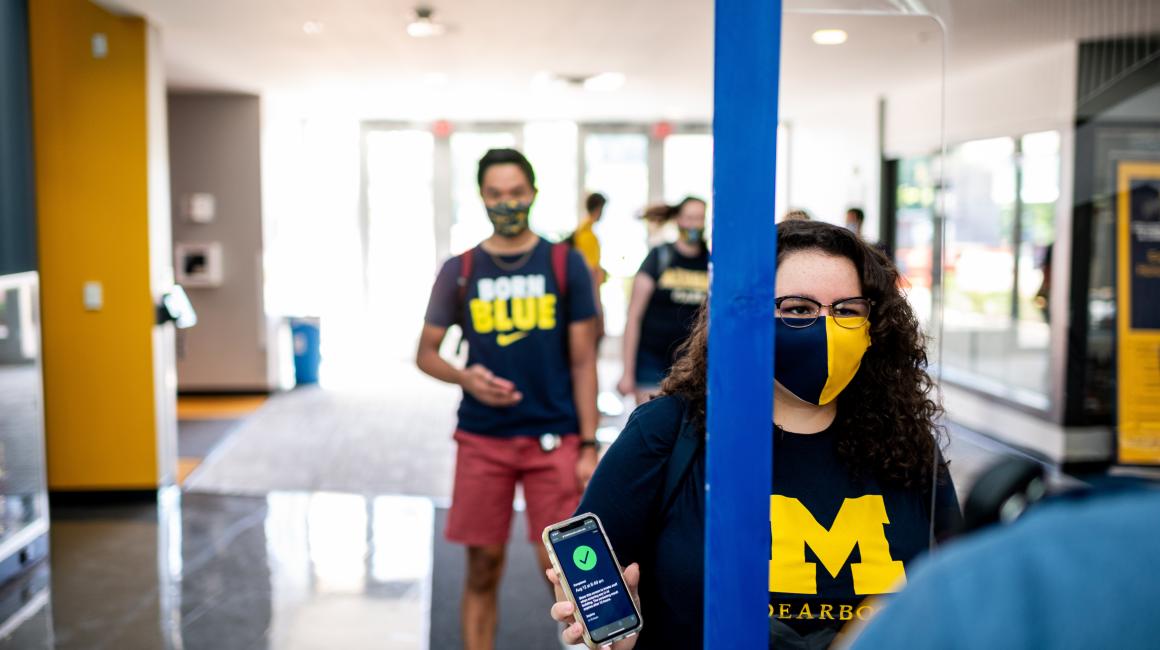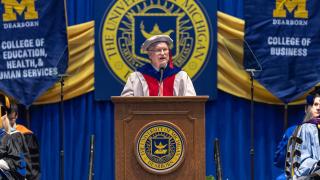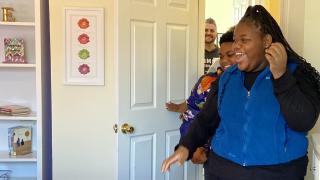
One of the big open questions heading into the fall term has been what happens if students, faculty and staff fail to comply with the university’s vaccination policy. Last Tuesday, university leaders gave us the answer in a detailed policy that also includes possible implications for the fall semester. To help you sift through it, we’ve broken down some of the key points, and you can get all the details in this communication from Chancellor Grasso. This video also summarizes all the important health and safety measures we’re using this fall, so check it out if you need a refresher.
The student policy
Student vaccination rates continue to be the biggest cause for uncertainty heading into the fall semester. As of Monday, Aug. 30, about 50% have submitted their vaccination records — a significant increase from the 39% reported last week. So here’s what will happen starting with the first day of classes on Sept. 1 for students enrolled in in-person or hybrid courses. (The policy is different for fully remote students; keep reading for that.) Door screeners will check vaccination policy compliance at building entrances, and students who are not in compliance will have to go to an on-campus testing location or provide proof of a negative COVID test. These tests will be required daily for anyone out of compliance (those without an accepted medical or religious exemption), and as long as a student has a negative result in the ResponsiBlue app, they will be allowed to continue their courses through Sept. 17. However, after that, students still out of compliance will be moved to an online section of their classes, if it’s available. If there aren’t any spots left, the student will be administratively withdrawn from the course and issued a tuition reimbursement. Students with an approved medical or religious exemption will still have to provide proof of a weekly negative COVID test to be on campus.
Fully remote students out of compliance with the vaccine policy now have an option of signing an attestation form stating they will not come to campus during the Fall 2021 semester. They will still have full access to online library resources, but will have their MCards deactivated. Students who violate this policy and come to campus after signing an attestation form will be charged with a non-academic conduct violation.
The faculty and staff policy
Vaccination rates among faculty and staff look much better, with about 74% of faculty and 82% of staff reporting their vaccination status as of Monday, Aug. 30. (This number, which is reduced from what was reported last week, now includes LEO lecturers on layoff and short-work break status.) For those out of compliance on that date, here’s what the two-step disciplinary measures will look like. First: A verbal warning, plus a request to talk with a public health counselor to try to resolve any questions someone has about the vaccine. Then, after a period of at least seven days, if someone is still not in compliance, the faculty or staff member will receive a written warning and face other forms of discipline. This could include ineligibility for a FY23 merit pay increase; restricted access to professional development and other funds; a one to three-day unpaid disciplinary layoff; delays in sabbaticals; loss of summer teaching hours; or ineligibility for university honorific recognition and awards.
If, however, you have applied for a medical or religious exemption, and you have not received news of your status by Aug. 30 due to delays in reviewing exemptions, you will be allowed to continue on-campus work with a daily negative COVID test until your status has been decided. If your exemption request is denied, you will be required to get daily tests if you’re working on campus until you are in compliance with the policy. Faculty and staff with an approved medical or religious exemption will still have to provide proof of a weekly negative COVID test to be on campus.
Vaccination and testing clinics
The university will provide testing and vaccination clinics in Kochoff Hall through Oct. 1 for those required to submit a daily or weekly negative COVID test. Students, faculty and staff will have the option for vaccination at the testing site. Beginning Oct. 4 through the end of the fall term, only testing services will be available. Faculty, staff and students should use the Test Reporting form to submit their required negative COVID test results. They may choose to complete necessary COVID testing at the location that works best for them.
Enforcement of the masking policy
Widespread vaccines are one main prong in the plan to keep everyone safe this fall. Masking is the other. Face coverings are required inside all buildings and on-campus transportation for all faculty, staff, students and guests. You can remove your face covering if you are actively eating or drinking or when in an office by yourself with the door closed. Those in violation of the policy will be subject to the non-academic code of conduct policy (students) or human resources discipline (faculty and staff). If you happen to forget your mask, disposable face coverings will be provided at screening stations and other gathering places on campus. Luckily, we had no face covering compliance issues last year, so keep up the good work, everyone!
The bottom line
The whole purpose of the vaccination policy is to create a safe environment for in-person classes this semester. As Dr. Preeti Malani, U-M’s Chief Health Officer, explained at our recent Town Hall, a highly vaccinated, masked population faces relatively low risks from indoor, in-person interactions. Because of this, if the campus does not achieve a student vaccination rate safe enough to maintain collective health and safety, or if we experience a significant outbreak, university leaders reserve the right to pivot to a fully remote semester. U-M health officials will be advising campus leadership on that decision, should it become necessary.
###
Want more details about the enforcement policies or other information about the fall plan? Get the latest news in this communication from Chancellor Grasso.






